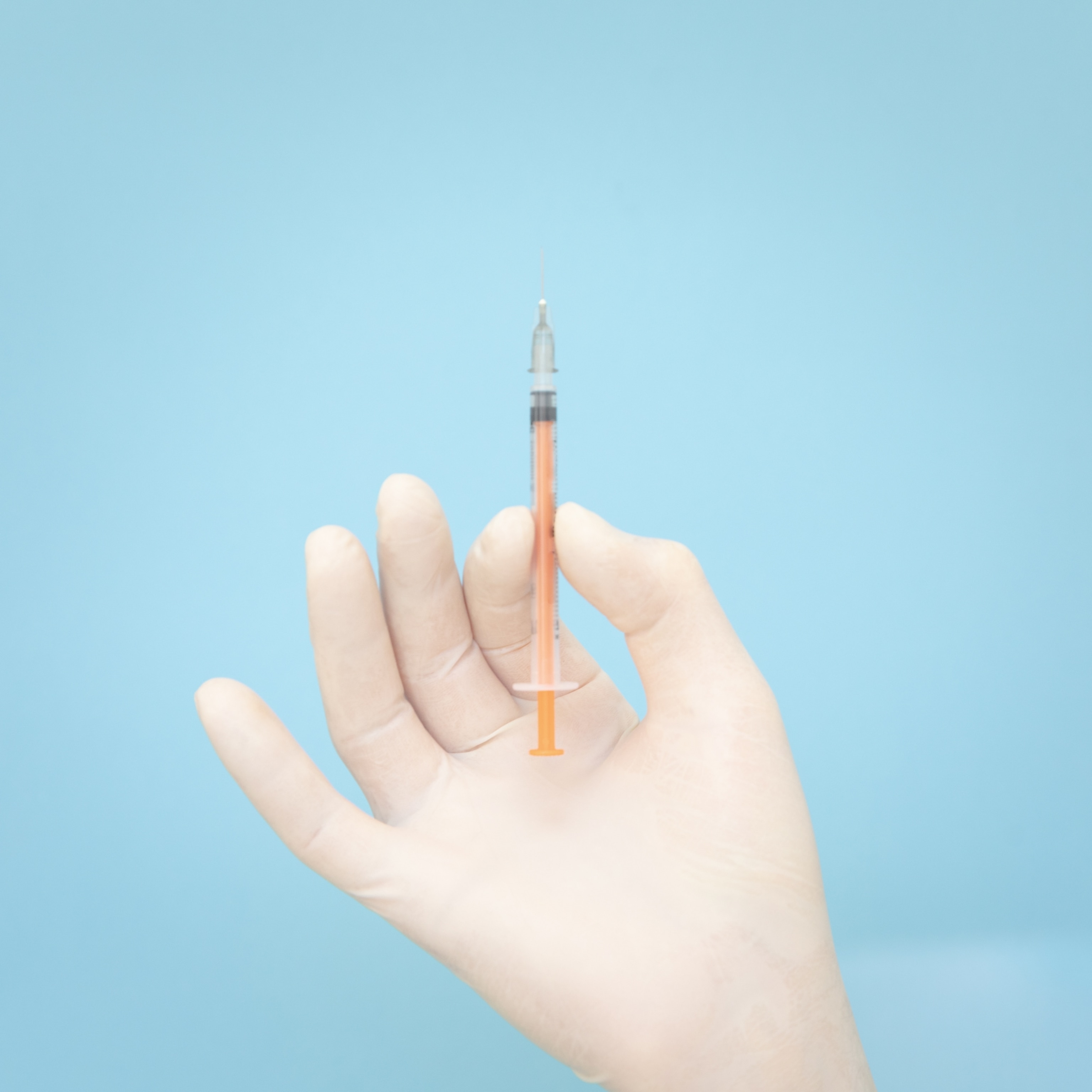
New evidence suggests that adults over 50 who receive the shingles vaccine—particularly the newer recombinant version—are significantly less likely to suffer strokes or heart attacks.
Photograph by massimo colombo, Getty Images
New research shows the shingles vaccine can lower your risk of stroke and heart attack—in addition to preventing the total agony of a blistering rash.
Shingles is an infection nobody wants. Those who have endured the blistering rash describe the pain as searing, burning, or stabbing—sometimes lingering for months without relief. In severe cases, the viral disease can even turn deadly.
Now, first-of-its-kind evidence suggests the vaccine that protects against shingles may do more than prevent agony. Data pooled from 19 studies and presented in Madrid at the world’s largest cardiology conference found that the shot could also lower your risk of stroke by 16 percent and your risk of heart attack by 18 percent.
Charles Williams, lead author of the study and the global associate medical director at the pharmaceutical company GSK, calls the findings “encouraging,” while also cautioning that “more research is needed” to separate causality from correlation. But the potential impacts are most striking: someone suffers a heart attack every 40 seconds in the United States, and strokes are responsible for one in 20 deaths.
(The shingles vaccine may also reduce your dementia risk—here’s why.)
Other scientists view the findings as yet another reason to increase awareness and uptake of a critical and routine shot that fewer than one in five adults receive as recommended. The U.S. Centers for Disease Control and Prevention recommends that everyone 50 and older get two doses of the vaccine—marketed as Shingrix—as well as immunocompromised adults as young as 19.
When taken as directed, Shingrix is more than 90 percent effective at preventing shingles—and this new research broadens its potential benefits, says William Schaffner, an infectious disease specialist at Vanderbilt University Medical Center in Nashville, who was not involved in the study. He adds that the findings may “hopefully help persuade more patients to get vaccinated.”
How could a shingles shot protect your heart?
Scientists are still unraveling the biology behind why the shingles vaccine may protect against cardiovascular disease. For now, the link appears to be tied to the downstream harms of the varicella-zoster virus (VZV) that causes shingles—the same virus responsible for childhood chickenpox.
“After recovery from chickenpox, VZV in the skin rash is not eliminated by the immune system but remains in a dormant state in nerve cells,” explains Albert Shaw, a professor of infectious diseases at Yale School of Medicine. As immunity wanes with age or illness, the virus can resurface as shingles—an extremely painful rash that typically follows a line of nerves on one side of the body.
(More adults under age 50 are getting shingles. Why?)
But shingles doesn’t just cause rash and discomfort, adds Shaw. It can also harm your liver and lungs, trigger fever, chills, headache, fatigue, and, in 10 to 15 percent of cases, cause nerve pain that lasts months. Shingles can also affect the eye and inner ear, potentially causing “permanent vision or hearing loss,” notes Yale dermatologist Jeffrey Cohen.
Beyond these direct harms, the virus is also linked to higher rates of heart attack and stroke, says Emily Rayens, an epidemiologist at Kaiser Permanente, who has recently published demonstrative research.
Two key mechanisms help explain the connection. One involves the systemic inflammation that occurs when a far-reaching infection like VZV damages nerves and weakens the circulatory system, explains Fawziah Lalji, an infectious disease researcher at the University of British Columbia. That inflammation can also injure the delicate inner lining of blood vessels—a process known as endothelial injury. Damaged vessels are more prone to clotting and blockage, Schaffner explains, which can trigger heart attacks and stroke.
You May Also Like
Shingles also sends the immune system into overdrive, straining the body’s normal regulatory processes. Lalji explains that this can disrupt the body’s ability to properly manage clotting, healing, and vessel integrity—raising risks of thrombosis (clot formation), necrosis (tissue death from poor blood flow), and aneurysms (weakened vessel walls that bulge and rupture).
The vaccine may help all this “by interrupting this chain of inflammatory and vascular events, thereby lowering cardiovascular risk,” says Dong Keon Yon, an infectious disease specialist at Kyung Hee University College of Medicine in Seoul, who has also studied the cardiovascular benefits of the vaccine. This means the shot offers both primary benefits of vaccination: preventing shingles from emerging and reducing severity if it does. Put another way, the vaccine can both stop the spark of the virus and dampen the fire if it ignites.
Despite such potential upsides, Williams cautions that most of the evidence so far comes from observational studies, which cannot prove causality: healthier people may simply be more likely to get vaccinated.
And because most of the studies were designed specifically to assess shingles prevention rather than cardiovascular outcomes, their findings may not fully capture effects in people at highest cardiovascular risk—an important caveat acknowledged across other research.
More unexpected benefits
Other studies around the globe echo the new findings and point to added benefits that come from preventing shingles.
In 2024, a Canadian review led by Lalji showed just how dangerous shingles can be for the heart and brain: the risk of stroke nearly doubles in the month after infection and remains significantly elevated for up to a year.
Then, an August 2025 U.S. cohort study, co-authored by Rayens, showed that the shingles vaccine not only lowers that risk of heart attack and stroke but also reduces the likelihood of vision-threatening complications such as herpes zoster ophthalmicus (when shingles affects the eye) and retinal inflammation.
(See how viruses look up close.)
And perhaps most compelling of all, in Seoul, Yon and colleagues followed participants for more than 12 years and reported that those who had been vaccinated against shingles had about a 26 percent lower risk of major cardiovascular events—including heart attack, stroke, and heart failure.
Multiple studies now also suggest shingles vaccination may lower dementia risk as well. Schaffner explains this benefit likely occurs because shingles and related viruses can infect nerve cells and blood vessels in the brain and vaccination can both prevent that infection from happening and lessen resulting damage if it does.
That matters, Yon notes, because “just as inflammation and vascular injury can compromise heart health, they may also impair cerebral blood flow or contribute to neuroinflammation—both of which are linked to cognitive decline.”
“Together,” Schaffner says, “these studies are telling us a consistent story.”
It’s a story punctuated by just how dangerous unchecked shingles is already known to be. “Shingles is a disease that doesn’t just cause a painful skin rash—it can damage the lungs, liver, and brain and can even become life-threatening, particularly in people with weakened immune systems,” says Shaw. “Preventing such harms is reason enough to get vaccinated, and these added potential benefits make the case even stronger.”


